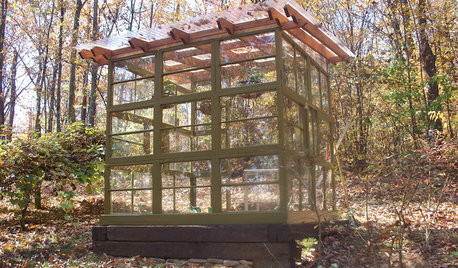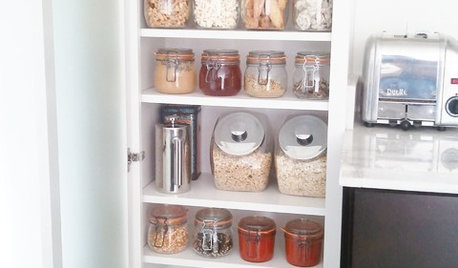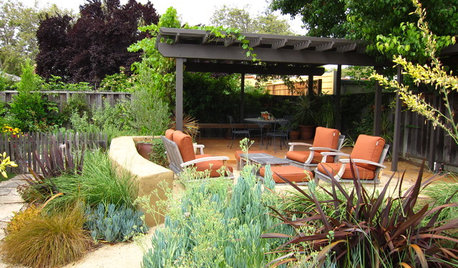ashes from wood pellet stove in compost pile/garden????
imresident7
15 years ago
Related Stories

GARDENING GUIDESGet on a Composting Kick (Hello, Free Fertilizer!)
Quit shelling out for pricey substitutes that aren’t even as good. Here’s how to give your soil the best while lightening your trash load
Full Story
GARDENING AND LANDSCAPINGSee a Family Greenhouse Grown From Scraps
Can-do resourcefulness and less than $400 lead to a new 8- by 8-foot home for plants on a Tennessee family's property
Full Story
HEALTHY HOME6 Tips From a Nearly Zero-Waste Home
Lower your trash output and increase your quality of life with these ideas from a mom who did it to the max
Full Story
EDIBLE GARDENSSummer Crops: How to Grow Tomatoes
Plant tomato seedlings in spring for one of the best tastes of summer, fresh from your backyard
Full Story
GARDENING GUIDESGarden Myths to Debunk as You Dig This Fall and Rest Over Winter
Termites hate wood mulch, don’t amend soil for trees, avoid gravel in planters — and more nuggets of garden wisdom
Full Story
GARDENING GUIDESWhat Are Your Spring Gardening Plans?
Tearing out the lawn? Planting edibles? Starting from scratch? Tell us what you plan to change in your garden this year
Full Story
FIREPLACESDesign Workshop: Smart Ways to Store Wood Outdoors
Consider size, location, protection, air circulation and, of course, style for storing your firewood
Full Story
EDIBLE GARDENSHow to Grow Your Own Sweet Summer Crops
This guide will help any gardener get started on growing the freshest warm-season veggies and berries for summer
Full Story
GARDENING GUIDESNew Ways to Think About All That Mulch in the Garden
Before you go making a mountain out of a mulch hill, learn the facts about what your plants and soil really want
Full Story
GARDENING GUIDESGet the Dirt on Your Garden’s Soil
Understand how your soil supports your plants so you can ensure your garden’s success
Full StoryMore Discussions








tsugajunkie z5 SE WI ♱
joepyeweed
Related Professionals
Reading Landscape Architects & Landscape Designers · East Rancho Dominguez Landscape Architects & Landscape Designers · Graham Landscape Architects & Landscape Designers · Mountain Brook Landscape Architects & Landscape Designers · Hartford Landscape Contractors · Dedham Landscape Contractors · Harrisburg Landscape Contractors · Huntington Landscape Contractors · North Ridgeville Landscape Contractors · Wayland Landscape Contractors · Bainbridge Island Decks, Patios & Outdoor Enclosures · Boise Decks, Patios & Outdoor Enclosures · Hershey Decks, Patios & Outdoor Enclosures · Randallstown Decks, Patios & Outdoor Enclosures · Eustis Decks, Patios & Outdoor Enclosuresimresident7Original Author
led_zep_rules
imresident7Original Author
digdirt2
cowgirl2
imresident7Original Author
joepyeweed
joemabe
Raw_Nature
Kimmsr
toxcrusadr
joemabe
joemabe
SouthCountryGuy Zone 4b-5 SE BC
Raw_Nature
david52 Zone 6
Priswell
nc_crn
david52 Zone 6
toxcrusadr